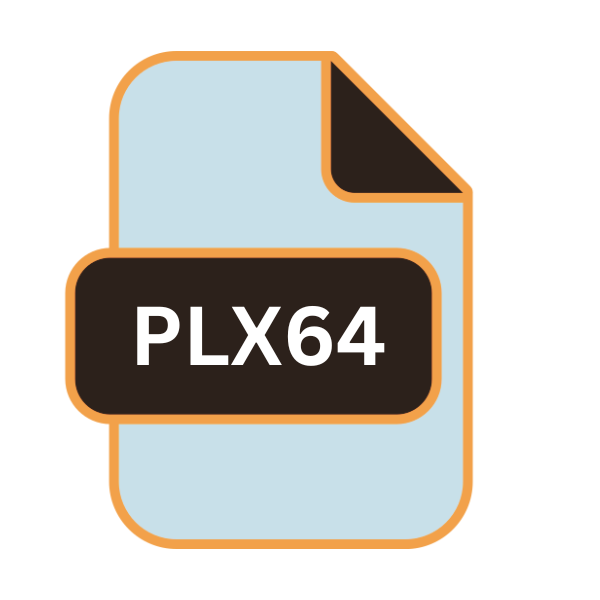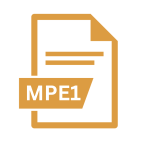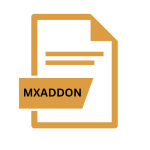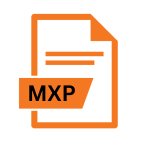.PLX64 File Extension

64-bit Linux IDA Plugin Module
| Developer | Hex-Rays |
| Popularity | |
| Category | Plugin Files |
| Format | .PLX64 |
| Cross Platform | Update Soon |
What is an PLX64 file?
The .PLX64 file extension primarily signifies a 64-bit plugin module designed for use within IDA Pro, a sophisticated interactive disassembler utilized by security researchers, malware analysts, and software developers alike.
These files contain additional functionality or features for IDA Pro specifically tailored for 64-bit Linux environments.
More Information.
The .PLX64 file extension was introduced to augment IDA Pro’s capabilities for analyzing 64-bit Linux binaries. Originating from the growing need to dissect increasingly complex code on Linux systems, these plugins initially aimed to provide specialized tools and algorithms tailored for 64-bit architectures.
As the demand for advanced binary analysis grew, .PLX64 files became integral to the arsenal of tools used by security researchers and software developers alike.
Origin Of This File.
The origin of the .PLX64 file extension can be traced back to the evolution of IDA Pro and the growing demand for analyzing 64-bit binaries on Linux platforms.
As the computing landscape shifted towards 64-bit architectures, there arose a need for specialized tools capable of efficiently disassembling and debugging these binaries.
To address this demand, developers created the .PLX64 format as a means to extend the capabilities of IDA Pro specifically for 64-bit Linux systems.
File Structure Technical Specification.
The .PLX64 file extension adheres to a specific structure dictated by the IDA Pro plugin framework. These files typically contain compiled code written in C or C++ that integrates seamlessly with the IDA Pro environment.
The technical specifications of .PLX64 files may vary depending on the functionality they provide, ranging from custom analysis algorithms to visualization tools tailored for 64-bit Linux binaries.
How to Convert the File?
Converting .PLX64 files for use on different operating systems involve several steps, particularly if you want to make them compatible with platforms other than Linux. Here’s a general guide on how to approach the conversion process:
1. Understand the Source Code: Before attempting to convert a .PLX64 file, you need to understand its source code. Typically, .PLX64 files are written in C or C++, utilizing the IDA Pro SDK (Software Development Kit) to interact with IDA Pro’s disassembly engine and interface. Familiarize yourself with the structure and functionality of the plugin to determine what changes may be necessary for cross-platform compatibility.
2. Address Platform Dependencies: .PLX64 plugins may contain platform-specific code or dependencies, such as system calls or library references specific to Linux. Identify and replace these dependencies with platform-agnostic alternatives or conditionally compile sections of code based on the target platform.
3. Choose a Development Environment: Depending on the target platform, choose an appropriate development environment and toolchain. For Windows, you might use Microsoft Visual Studio; for macOS, Xcode; and for Linux, GCC or Clang. Ensure that the chosen environment supports the language and libraries used in the plugin’s source code.
4. Modify Build Configuration: Adjust the build configuration of the plugin to accommodate the target platform. This may involve changes to compiler flags, linker settings, or project configurations to ensure compatibility and proper linking with system libraries.
5. Compile the Plugin: Use the chosen development environment to compile the modified plugin source code for the target platform. Resolve any compilation errors or warnings that arise during the process, ensuring that the resulting binary is compatible with the target platform’s architecture and runtime environment.
6. Integrate with IDA Pro: Once you have successfully compiled the plugin for the target platform, integrate it with the corresponding version of IDA Pro. This typically involves copying the compiled binary (.PLX64 file) to the appropriate directory within IDA Pro’s plugin directory structure and ensuring that IDA Pro recognizes and loads the plugin upon startup.
7. Test and Debug: Thoroughly test the converted plugin to verify its functionality and compatibility on the target platform. Use IDA Pro’s debugging capabilities to identify and address any runtime issues or platform-specific quirks that may arise during execution.
8. Distribute or Share: If the converted plugin meets your requirements and performs as expected on the target platform, consider sharing it with the community or distributing it to other users who may benefit from its functionality. Document any platform-specific considerations or limitations to assist other users in utilizing the plugin effectively.
Advantages And Disadvantages.
Advantage:
- Enhanced Analysis Capabilities: .PLX64 plugin modules augment IDA Pro’s native functionality, allowing for more comprehensive analysis of 64-bit Linux binaries. This can include specialized algorithms for identifying vulnerabilities, uncovering obfuscated code, or visualizing program flow.
- Tailored for Linux Environments: Given the prevalence of Linux in both enterprise and security-focused environments, .PLX64 files are specifically crafted to operate seamlessly within these environments, providing a familiar and efficient workflow for analysts and researchers.
- Community Contribution: The open nature of IDA Pro’s plugin ecosystem encourages community contributions and collaboration, leading to a diverse array of .PLX64 plugins address various aspects of binary analysis and reverse engineering on Linux platforms.
Disadvantages:
- Platform Specificity: While .PLX64 files excel in 64-bit Linux environments, they may not be directly compatible with other operating systems or architectures, limiting their portability and interoperability.
- Learning Curve: Developing .PLX64 plugins require proficiency in both the IDA Pro SDK and the intricacies of 64-bit binary analysis, which can pose a steep learning curve for novice developers or those unfamiliar with low-level programming concepts.
- Maintenance Overhead: As IDA Pro and Linux environments evolve, .PLX64 plugins may require updates and maintenance to remain compatible and effective, placing a burden on plugin developers to ensure ongoing support.
How to Open PLX64?
Open In Windows
Convert the .PLX64 plugin source code to a Windows-compatible format, compile using Microsoft Visual Studio, and place the compiled plugin in IDA Pro’s plugin directory.
Launch IDA Pro on Windows to access and utilize the converted .PLX64 plugin for analyzing binaries on the Windows platform.
Open In Linux
Copy the .PLX64 file to IDA Pro’s plugin directory on Linux. Launch IDA Pro, and the .PLX64 plugin will be automatically detected and available for use.
No additional conversion or compilation steps are required, as .PLX64 files are designed to be directly compatible with 64-bit Linux systems.
Open In MAC
Adapt the .PLX64 plugin source code for macOS compatibility, compile using Xcode or a macOS-compatible compiler, and place the compiled plugin in IDA Pro’s plugin directory on macOS.
Launch IDA Pro on macOS to access and utilize the converted .PLX64 plugin for binary analysis.
Open In Android
Due to platform constraints, direct opening of .PLX64 files on Android is not feasible. Instead, utilize IDA Pro’s remote debugging capabilities to analyze binaries running on Android devices.
Connect the Android device to a computer running IDA Pro and configure remote debugging settings to analyze binaries on the device.
Open In IOS
Similarly, direct opening of .PLX64 files on iOS is not possible. Employ IDA Pro’s remote debugging features to analyze binaries executing on iOS devices.
Connect the iOS device to a computer with IDA Pro installed and configure remote debugging settings to inspect binaries running on the device.
Open in Others
For platforms not explicitly mentioned, follow similar principles as outlined for Windows, macOS, Linux, Android, and iOS.
Adapt the .PLX64 plugin source code for platform compatibility, compile using the appropriate toolchain, and integrate with IDA Pro or utilize remote debugging capabilities if direct opening is not feasible.













